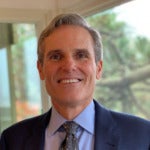A Workers’ Bill of Rights: What We Want and How to Get There
Description
Work just isn’t what it used to be. New technology, increased global competition and trade, the growth of gig work, shifting demographics, the rise of shareholder capitalism, and other factors have reshaped work, economic opportunity, and the employee-employer relationship. In contrast, our system of labor laws has changed very little. Laws designed decades ago have proved inadequate to protecting workers’ well-being in this altered context and the outcomes for many working people across the US have been devastating. Despite an increasingly productive economy, wages have flatlined in recent decades and union representation has fallen dramatically. Too many jobs provide compensation that is insufficient to meet basic living expenses, offer few opportunities for growth and economic advancement, and afford no system through which working people can address problems in their workplace, leaving too many hardworking people feeling disrespected and disposable. These conditions contradict ideals of individual freedom, equity, equal opportunity, and the American Dream.
But workers are not sitting idly by. A new generation of worker organizers is now demanding better. Workers organizing against unsafe and low paid work led to a sweeping set of worker protections and rights being passed in the 1930s. Those laws, that collectively became known as a workers’ constitution, represented a first step towards a workers’ bill of rights. Will today’s efforts lead to a renewed and expanded commitment to working people sharing in the country’s economic success? What would a workers’ bill of rights look like today? What will be needed to make a broad vision of workers’ rights reality for America’s working people?
This is the fifth and final conversation in our five-part series, The History and Future of U.S. Labor Law: Conversations to Shape the Future of Work.
Share
Tweet In this video, hear @AspenJobQuality #talkopportunity with @DanPorterfield, @jazbrisack, @DonJHoward, Linda Nguyen, @aijenpoo, and @dorianwarren about a Workers’ Bill of Rights.
Tweet Video: A Workers’ Bill of Rights. Feat @DanPorterfield, @jazbrisack (SBWU), @DonJHoward @IrvineFdn, Linda Nguyen (UFCW Local 770), @aijenpoo @domesticworkers, and @dorianwarren @communitychange.
Tweet Labor laws have improved work, but often excluded certain jobs. Women, people of color, and immigrants have inequitably suffered the consequences. How do we right these historical wrongs?
Tweet After years of deteriorating conditions, many workers feel disrespected and disposable. But a new generation of organizers is demanding better. What would a workers’ bill of rights look like?
Tweet Too many jobs offer low wages, little advancement, and no system to address workplace concerns. But organizers aren’t sitting idly by. Will their efforts help workers share in our economic success?
Tweet Work has changed dramatically over the years, but workplace protections have not. Building on the legacy of last century’s reforms, organizers are forging a new, broader vision of workers’ rights.
Opening Remarks

Daniel R. Porterfield @DanPorterfield
President and CEO, The Aspen Institute @AspenInstitute
Daniel R. Porterfield is President and CEO of the Aspen Institute, a global nonprofit organization committed to realizing a free, just, and equitable society. He has been recognized as a visionary strategist, transformational leader, devoted educator, and passionate advocate for justice and opportunity.
At the Aspen Institute, Porterfield has worked to build upon the organization’s legacy of societal influence and commitment to human dignity while positioning it for a future where it can make its most profound and lasting impacts.
Speakers

Jaz Brisack @jazbrisack
Barista and Organizing Committee Member, Starbucks Workers United
Jaz Brisack is a barista at the Elmwood Starbucks in Buffalo, New York, which was the first unionized Starbucks in the United States, and she is an organizing committee member with Starbucks Workers United. Jaz was the first woman Rhodes Scholar from the University of Mississippi, and she studied labor history at the University of Oxford. She was a Pinkhouse Defender at the Jackson Women’s Health Organization in Mississippi before moving to Buffalo to work with Workers United Upstate New York.

Don Howard @DonJHoward
President and CEO, The James Irvine Foundation @IrvineFdn
Don Howard is the president and chief executive officer of the James Irvine Foundation, leading the foundation to focus on a singular goal: ensuring all low-income workers in California have the power to advance economically. Don was previously Irvine’s executive vice president, directing grantmaking activities.
He serves on the Public Policy Institute of California’s Leadership Council, the California Community Colleges’ Chancellor’s External Leadership Advisory Council, the Partnership for Public Service’s Partnership West Advisory Council, and the Advisory Board of the California Policy Lab.
Prior to joining Irvine in 2012, Don was a partner at the Bridgespan Group, where he served as a strategic advisor to nonprofit and foundation leaders, and he led Bridgespan’s San Francisco office for more than a decade. Earlier in his career, Don helped corporate leaders formulate strategy and improve the effectiveness of their organizations as a principal at Booz Allen Hamilton and later as a managing director at the Scient Corporation.
Don grew up in Long Beach, California, and came to the Bay Area to earn his bachelor’s degree in industrial engineering at Stanford University, where he also obtained his Master of Business Administration from the Graduate School of Business. He has written, spoken, and taught classes on issues of philanthropic strategy, nonprofit management and funding, and social entrepreneurship.
As a volunteer, Don has been an activist around HIV and other health-related issues, serving in the past on advisory boards at the San Francisco Department of Public Health; the University of California, San Francisco; and the National Institutes of Health. He has acted as an advisor to the boards of several San Francisco community organizations and served on the board of the San Francisco AIDS Foundation. Don also has worked extensively outside the United States, including a volunteer posting with a USAID-sponsored initiative to provide business advice to private enterprises in central Europe.

Linda Nguyen
Chief of Staff, United Food and Commercial Workers Local 770
Linda Nguyen is chief of staff of the United Food and Commercial Workers Local 770, a union representing 31,000 food chain and other essential workers. She brings nearly a decade and a half of experience building teams that advance economic, social, racial, and environmental justice through organizing, policy advocacy, coalition building, and strategic communications in Los Angeles, New York, and Chicago. Together with leadership and staff, Linda drove UFCW 770’s worker-led, emergency COVID-19 actions, campaigns, and crisis communications initiatives that led to industry-setting standards such as the right to masking, testing, employer-provided personal protective equipment, and other workplace health and safety measures.
Prior to joining UFCW 770, Linda co-founded Jobs to Move America and was the driving force in developing the organization’s national campaigns to re-shore US manufacturing jobs. Her work led to the passing of good jobs policies on $6 billion of public projects and the creation of thousands of new unionized manufacturing jobs, with pipelines for low-income and communities of color.
She is an Aspen Institute Job Quality Fellow and holds a master’s degree in urban and regional planning from the University of California, Irvine.

Ai-jen Poo @aijenpoo
President, National Domestic Workers Alliance @domesticworkers
Ai-jen Poo is an award-winning organizer, author, and a leading voice in the women’s movement. She is the president of the National Domestic Workers Alliance, director of Caring Across Generations, co-founder of SuperMajority, co-host of Sunstorm podcast, and a trustee of the Ford Foundation. Ai-jen is a nationally recognized expert on elder and family care, the future of work, and what’s at stake for women of color. She is the author of the celebrated book, “The Age of Dignity: Preparing for the Elder Boom in a Changing America.”
Moderator

Dorian Warren @dorianwarren
Co-President, Community Change @CommunityChange; Co-Founder and Co-Chair, Economic Security Project @EconomicSecProj
A progressive scholar, organizer, and media personality, Dorian Warren has worked to advance racial, economic, and social justice for more than two decades. Like the organizations he leads, Warren is driven by the innate conviction that only social movements — led by the people most affected by racial, economic, gender, and social injustice — can change their communities and public policies for the better.
Warren is co-president of Community Change, an organization founded in 1968 by civil rights, labor, and community leaders to honor the memory of Robert F. Kennedy’s fight to end poverty in America. He is also the co-founder and co-chair of the Economic Security Project, an innovative social impact organization that has already shifted the national conversation around cash, economic power, and economic security. And he is the co-host of the “Deep Dive” podcast on “The Takeaway” with Melissa Harris-Perry.
Warren taught for over a decade at the University of Chicago and Columbia University, where he was co-director of the Columbia University Program on Labor Law and Policy. He’s the co-author of “The Hidden Rules of Race,” co-editor of “Race and American Political Development,” and author of numerous academic articles. He also worked at MSNBC, where he was a contributor, fill-in host for “Melissa Harris-Perry” and “Now with Alex Wagner,” and host and co-executive producer of “Nerding Out” on MSNBC’s digital platform, now Peacock. He was previously a Fellow at the Roosevelt Institute and serves on the boards of Working Partnerships USA, the Leadership Conference on Civil and Human Rights, the National Employment Law Project, The Model Alliance, and The Nation magazine.
As a commentator on public affairs, Warren has appeared regularly on television and radio, including NBC Nightly News, ABC, MSNBC, CNN, CNBC, BET, BBC, NPR, Bloomberg, and NY1, among other outlets. He has also written for The Nation, The Huffington Post, Newsweek, Salon, The Washington Post, The New York Times, Medium, Ebony.com, and Boston Review.
The History and Future of U.S. Labor Law: Conversations to Shape the Future of Work
U.S. labor laws passed in the last 100 years improved job quality for millions of workers, establishing and enhancing bargaining rights, wages, opportunities, and workplace safety while also helping to create the world’s largest economy and middle class. These laws did not redound to the benefit of all workers and too often excluded women, people of color and immigrants from their protections. In many ways, these laws were the codification of a social contract across class in the U.S., creating the conditions for economic progress with a mostly common purpose. Today, however, the power of these laws has eroded and the rights they once afforded workers–to have a voice in the workplace, to be safe from harm, to access opportunity regardless of social status, to earn a decent living–have diminished. As a result, millions of workers in the U.S. today find themselves immersed in the fight, like many workers before them, to access opportunity and improve job quality for themselves and future generations.
The future of work will be shaped by what we do now, just as the labor laws passed long ago have influenced opportunity, employment and workplaces today. Understanding our past is, therefore, vital to charting the course for what we want work and job quality to look like tomorrow and decades from now. Join The Aspen Institute Economic Opportunities Program for this five-part discussion series, The History and Future of U.S. Labor Law: Conversations to Shape the Future of Work, where we will learn about and reflect on the history of U.S. labor law, examine current implications and challenges, and discuss how we shape a future of work that provides opportunity and dignity to all.
- Part I: Worker Power and the National Labor Relations Act – March 16
- Part II: The Rewards of Work: Lessons from the Fair Labor Standards Act – April 7
- Part III: Title VII of the Civil Rights Act: Fulfilling the Promise of Equal Opportunity – April 27 (tentative)
- Part IV: The Occupational Safety and Health Act: The Past and Future of Workers’ Well-Being – May 4 (tentative)
- Part V: A Workers’ Bill of Rights: What We Want and How to Get There – May 26 (tentative)
Opportunity in America
The Economic Opportunities Program’s Opportunity in America discussion series has moved to an all-virtual format as we all do what we can to slow the spread of COVID-19. But the conversations about the changing landscape of economic opportunity in the US and implications for individuals, families, and communities across the country remain vitally important. We hope you will participate as we bring our discussions to you in virtual formats, and we look forward to your feedback.
We are grateful to Prudential Financial, Walmart, the Surdna Foundation, the W. K. Kellogg Foundation, Bloomberg, and the Mastercard Center for Inclusive Growth for their support of this series.
Learn More
The Economic Opportunities Program advances strategies, policies, and ideas to help low- and moderate-income people thrive in a changing economy. Follow us on social media and join our mailing list to stay up-to-date on publications, blog posts, events, and other announcements.